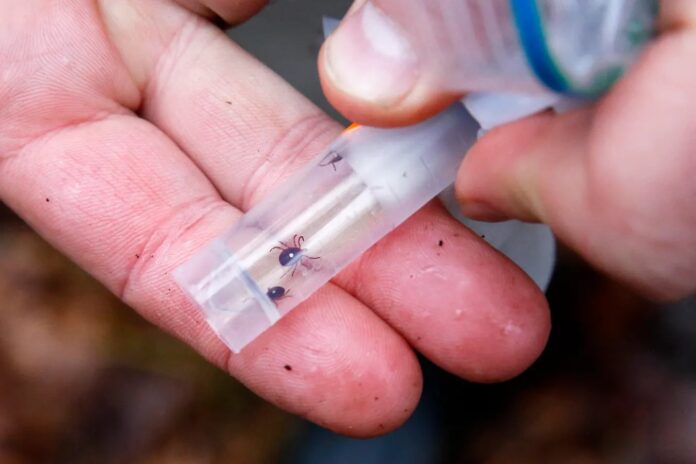The first confirmed death linked to alpha-gal syndrome, a severe allergy to red meat triggered by tick bites, has been reported in New Jersey. The case, detailed in the Journal of Allergy and Clinical Immunology: In Practice, underscores a growing public health concern as tick populations expand and awareness of this condition remains low. The 47-year-old victim died after consuming a hamburger, experiencing severe anaphylaxis despite initially appearing only mildly ill.
The Mystery of Alpha-Gal Syndrome
Alpha-gal syndrome (AGS) isn’t a typical food allergy; it’s an immune response to a sugar molecule called galactose-alpha-1,3-galactose (alpha-gal). This sugar is present in most mammals except humans and primates. Ticks, particularly the Lone Star tick (Amblyomma americanum ), transmit alpha-gal when feeding on animals like deer, cattle, and pigs, then biting humans. The human immune system recognizes alpha-gal as foreign, generating antibodies that trigger allergic reactions when red meat or products containing it (gelatin, some medications) are consumed.
Delayed Diagnosis and Severe Reactions
Diagnosing AGS can be delayed because symptoms mimic other allergic reactions and many doctors lack awareness. The New Jersey man initially presented with severe gastrointestinal distress after consuming steak weeks before his fatal reaction, but dismissed it. Later, an autopsy revealed no immediate cause of death until blood tests confirmed exceptionally high levels of alpha-gal IgE antibodies (over 1% – a significant threshold). His tryptase levels exceeded 2000 ng/mL, indicative of extreme anaphylaxis.
The Expanding Tick Threat
The Lone Star tick’s geographic range is expanding northward due to climate change, increasing the risk of AGS in previously unaffected areas. Warmer winters allow for longer tick seasons, and deer populations, the tick’s primary host, are also migrating. The CDC reports that 42% of healthcare professionals surveyed in 2023 were unaware of AGS, while 35% lacked confidence in diagnosing it.
Prevention and Management
Currently, there is no cure for AGS. Management involves strict avoidance of red meat, dairy, and certain medications. Reactions can range from mild hives to life-threatening anaphylaxis, necessitating the use of epinephrine (EpiPen) and antihistamines. Avoiding tick bites through protective clothing, repellents, and regular checks remains the primary preventative measure.
Urgent Need for Awareness and Action
The number of positive alpha-gal antibody tests has increased hundredfold between 2013 and 2024, signaling a rapidly escalating public health problem. Despite warnings from scientists, political and policy action has lagged. This situation underscores the need for increased awareness among healthcare providers, improved surveillance, and proactive measures to control tick populations. Ignoring this ticking time bomb will only lead to more severe cases and preventable deaths.

































